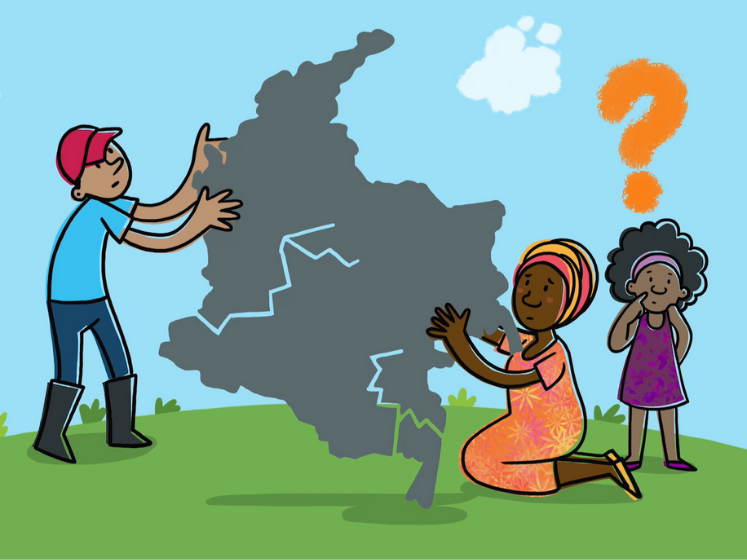Schools for Forgiveness and Reconciliation (ES.PE.RE) in Colombia provide individuals and communities affected by armed conflict with the tools to build trust, challenge resentment, re-think their future, and strengthen community ties.
These are the findings from a three year, UK-Colombian partnership project studying the mental health and life trajectories of young people and adults living in areas impacted by more than five decades of armed conflict. The results of this research have been developed into an animated short film created by Colombian graphic design company Pataleta.
 Pathways to Reconciliation
In English: This film describes a three year project with communities living in territories of armed conflict in Colombia. Created by Pataleta
Pathways to Reconciliation
In English: This film describes a three year project with communities living in territories of armed conflict in Colombia. Created by Pataleta
 Pathways to Reconciliation
In Spanish: The film describes a three year project with communities living in territories of armed conflict in Colombia. Created by Pataleta
Pathways to Reconciliation
In Spanish: The film describes a three year project with communities living in territories of armed conflict in Colombia. Created by Pataleta
The project, a partnership between LSE, Fundación Santa Fe de Bogotá and Fundación para la Reconciliación and funded by UK Research and Innovation (UKRI), Newton Fund and Minciencias, aimed to investigate the impact of the ES.PE.RE programme – a non-clinical intervention that seeks to help individuals reconcile their experiences of war and build paths towards peace – taking place across Colombia on individual and social wellbeing across seven municipalities in northern, central, and southern Colombia.
They found that the more communities had been exposed to violence, the harder it was to find the willingness to forgive and reconcile, all crucial to rebuilding trust and social ties, often with communities who may have stood on different sides in conflict.
Individuals who participated in the ES.PE.RE, however, were able to challenge these barriers and re-frame them to forgive and reconcile, and then re-think their future goals and social ties in the wider context of their community. These, in turn, had a positive impact on mental health, despite the challenges imposed by the context and the Colombian Peace Agreement.
UK Principal Investigator Professor Sandra Jovchelovitch (LSE) said:
“Building cultures of peace is an arduous process that necessarily requires a coalition of knowledges and experiences. Local communities are extremely effective in building knowledge and developing solutions to societal challenges and academics must learn how to partner effectively with local populations. As you will see in our video, figurative experiences of forgiveness and reconciliation are transformative. They improve mental health, trust in capacity to achieve goals, re-think the future, quality of life and personal relationships. We very much hope that our research partnership and its findings will contribute towards the development and consolidation of a sustainable peace in Colombia.”
This research will continue through the “STARS-C” project, jointly funded by Minciencias (Colombia) and ESRC/UKRI (UK), and a collaboration between University College London (UCL), London School of Economics and Political Science (LSE), the Universidad de los Andes in Bogotá and not-for-profit organisations COOMBUVIPAC and Corpo Manigua. This twenty-eight-month project, finalising in June 2023, aims to build effective mental health provision in Colombian communities, using a bottom-up participatory approach. Find out more about “STARS-C” here.
Behind the story:
Pathways to Reconciliation was co-founded by UK Research and Innovation (UKRI), Newton Fund and Minciencias. The project formed part of ten UK-Colombian research projects, launched in 2018, that sought to understand and improve individual and community mental health and increase the evidence to support these outcomes, for those affected by armed conflict in Colombia. Visit the Pathways to Reconciliation website here: https://www.lse.ac.uk/PBS/Research/Pathways-to-Reconciliation
The short-animated film was created in 2022 by Pataleta, on behalf of the Pathways to Reconciliation project. https://pataleta.net/en/